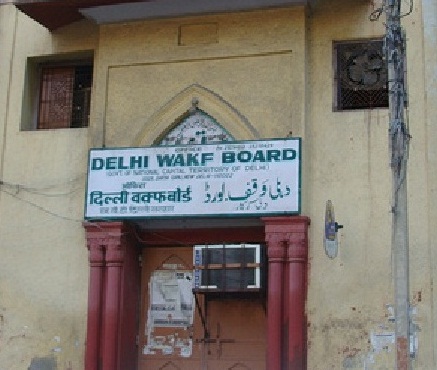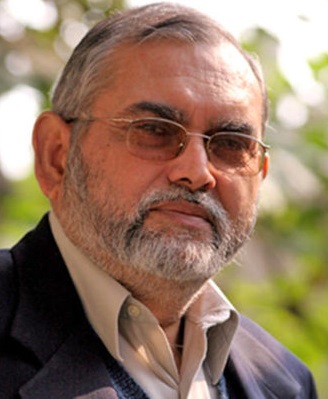Last Updated on August 7, 2024 1:25 pm by INDIAN AWAAZ
AMN / NEW DELHI
The government must desist from treading dangerous path of altering Waqf Act and should hold serious discussions with Muslim scholars, particularly with the representatives of the Muslim Personal Law Board, before moving further in this matter, said president All India Muslim Majlis-e Mushawarat Dr Zafarul Islam Khan.
In a press statement Dr Khan said: “It is now confirmed that the Modi government will soon introduce two bills related to Waqf or Muslim endowments. The first will repeal the Waqf Act 1923 while the other will insert far-reaching changes into the Waqf Act 1995, so much so that the government, through district Collector, will now decide if a certain property is a waqf or not.
The new bill builds on a tradition followed by this government that it does not find it necessary to consult the stakeholders, the Muslim community in this case, as worthy of consultation in a matter directly and deeply touching it.
The government through this bill also tries to redefine what a “waqf” property is. It says that only a Muslim who has been practicing his religion for the previous five years can make a waqf and that the earnings from waqf properties will be spent on certain specified heads while, under Islamic law, anyone including a non-Muslim, can make a waqf and the earnings of a certain waqf property may be spent only as specified by the person making that waqf.
The new bill also opens the gates for non-Muslim legislators and others to become members of the Waqf Council and the state waqf boards. This means that endowments of other religious communities too will be administered by people outside their communities.
In a nutshell, the new amendments will usher in a Collector Raj to decide at will what a waqf is and what is not. The finality of the waqf tribunals’ verdicts has been taken away and given to the Collector. The new amendments also establish the tradition of this government of ignoring to consult the Muslim community in matters deeply affecting it. It started this process with the introduction of the triple talaq bill in 2019 when a minister boasted on the floor of the house that the government has not consulted the Muslim community about the said bill. Same is the case with the Uniform Civil Code which is slowly being pushed to a stage when a central bill will soon be introduced in Parliament, without consulting the community.
The new bill gives the state government’s sole power to nominate members of its waqf board. Moreover, some or all the nominees may not be Muslims. The amendments also undo the oral appointment of caretakers (mutawallis) of waqf. This has bearing on the oral declaration of waqf in violation of the Islamic law.
In a nutshell, the new amendments not only attempt to usurp the powers of Islamic scholars to interpret the waqf laws but also place the administration of waqfs in non-Muslim hands which a serious infringement on the powers and rights of religious communities to administrator their endowments according to their religious laws.
The government must desist from treading this dangerous path and should hold serious discussions with Muslim scholars, particularly with the representatives of the Muslim Personal Law Board, before moving further in this matter”.

وقف ترمیماتی بل پر بیان
اب یہ واضح ہو گیا ہے کہ مودی حکومت جلد ہی پارلیمنٹ میں وقف سے متعلق دو بل پیش کرنے والی ہے۔ ایک کے ذریعے وقف ایکٹ ۱۹۲۳ کو کینسل کیا جائے گا اور دوسرے کے ذریعے وقف ایکٹ ۱۹۹۵ میں دور رس تبدیلیاں لائی جائیں گی۔ یہ تبدیلیاں اتنی خطرناک ہیں کہ اب ایک ضلع کلکٹر فیصلہ کرے گا کہ کوئی جائداد وقف ہے یا نہیں اور اس کا فیصلہ آخری ہوگا۔
نئے بل لانے میں حکومت وہی روش اپنا رہی ہے جو وہ پہلے سے کرتی آئی ہے، یعنی اصحاب معاملہ )مسلم سماج ) سے کوئی مشورہ کئے بغیر یہ نیا قانون پاس کیا جا رہا ہے۔ دوسرے لفظوں میں ایک بنیادی اور اہم مسئلے پر متعلقہ سماج سے بات کرنے کی حکومت نے ضرورت نہیں سمجھی۔
اس بل کے ذریعے حکومت ”وقف “ کی نئی تعریف کرنا چاہتی ہے۔ اس کا کہنا ہے کہ کوئی شخص جو پچھلے پانچ سال سے اسلام پر پابند رہا ہو وہی اپنی جائداد کو وقف کر سکتا ہے۔ ترمیمات میں حکومت یہ بھی طے کر رہی ہے کہ وقف کی جائداد میں ہونے والی آمدنی کہاں خرچ ہوگی۔ یہ دونوں باتیں اسلامی قانون کے خلاف ہیں کیونکہ اسلامی قانون کے تحت کوئی بھی، یہانتک کہ غیر مسلم بھی، اپنی جائداد وقف کر سکتا ہے اور وقف کی آمدنی صرف اسی مد میں صرف کی جا سکتی ہے جسے وقف کرنے والے (واقف) نے طے کیا ہو۔
نئی ترمیمات نے یہ راستہ بھی کھول دیا ہے کہ وقف کاؤنسل اور ریاستی وقف بورڈوں کے ممبران غیر مسلم ہوں۔ اس کا مطلب ہے کہ وقف جائدادوں کو اب غیر مسلم ایڈمنسٹریٹر چلائیں گے۔
مجموعی طور پر نئی ترمیمات کی منظوری ہونے پر ایک کلکٹر راج وجود میں آئے گا جو فیصلہ کرے گا کہ کون جائداد وقف ہے اور کون نہیں ہے۔ وقف ٹرائیبونل کے فیصلے بھی آخری نہیں ہوں گے جبکہ ملکیت کے سلسلے میں کلکٹر کا فیصلہ آخری ہوگا۔
نئی ترمیمات سے یہ نئی ریت بھی پکی ہو رہی ہے کہ حکومت اہم اسلامی معاملات میں مسلم سماج سے مشورہ نہیں کرے گی۔ یہ ریت طلاق ثلاثہ کے سلسلے میں ۲۰۱۹ کے بل سے شروع ہوئی تھی جب ایک وزیر نے پارلیمنٹ میں فخریہ اعلان کیا تھاکہ اس سلسلے میں مسلم سماج سے بات نہیں کی گئی ہے۔ یونیفارم سول کوڈ کے سلسلے میں بھی یہی ہو رہا ہے اور جلد ہی وہ مرحلہ آئے گا جب مرکزی پارلیمنٹ میں بھی مسلم سماج سے مشورہ کئے بغیر ایک بل لاکر مرکزی یونیفارم سول کوڈ نافذ کر دیا جائے گا۔
نئی ترمیمات نے ریاستی حکومتوں کو بھی یہ اختیار دیا ہے کہ وہ جسے چاہے وقف بورڈ کا ممبر بنائیں اور یہ ضروری نہیں ہے کہ وہ ممبر مسلمان بھی ہوں۔ اسی طرح موجودہ ترمیمات کے ذریعے متولی کی واقف کے ذریعے زبانی تعیین کو تسلیم نہیں کیا گیا ہے۔ اس کا مطلب یہ بھی ہوگا کہ زبانی طور سے کوئی جائداد وقف نہیں کی جاسکے گی۔
ان ساری تفصیلات کا خلاصہ یہ ہے کہ اس بل کے ذریعے مسلم علماء کا یہ حق چھین لیا گیا ہے کہ وہ وقف کے بارے میں اسلامی قانون کی تعیین و تشریح کریں۔ اسی کے ساتھ وقف چلانے کی ذمہ داری بھی غیر مسلمین کے ہاتھوں میں دی جا رہی ہے جو کہ مذہبی سماجوں کے اس حق کی پا مالی کرتا ہے کہ وہ اپنے اوقاف کو اپنے مذہبی قانون کے مطابق چلائیں۔ حکومت کو اس خطرناک راستے پر چلنے سے گریز کرنا چاہئے اور اس اہم مسئلے پر مسلم علماء اور بالخصوص مسلم پرسنل لا بورڈ کے ذمے داروں سے بات کر کے آگے بڑھنا چاہئے۔
ڈاکٹر ظفرالاسلام خان
صدر آل انڈیا مسلم مجلس مشاورت (رجسٹرد)
سابق صدر دہلی اقلیتی کمیشن

